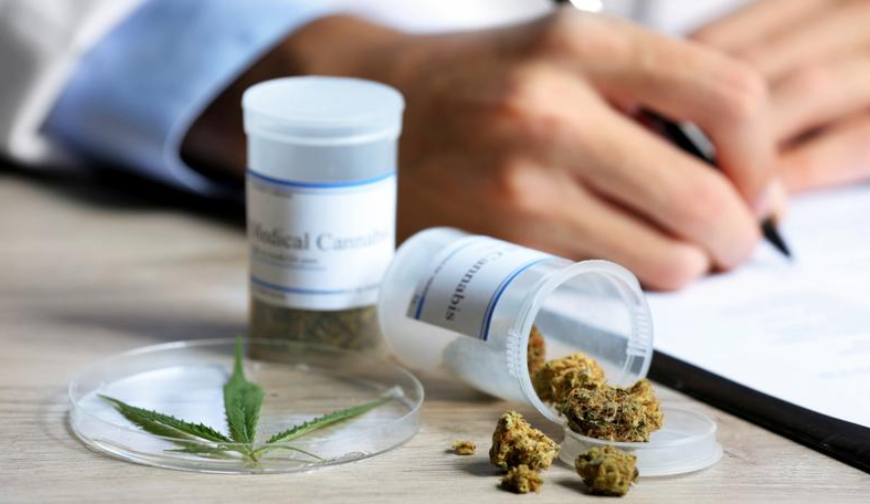Obesity is a prevalent health concern worldwide, with significant implications for both physical and mental well-being. In recent years, there has been growing interest in alternative approaches to weight management, including the use of cannabidiol (CBD), a compound derived from the cannabis plant. In this article, we’ll delve into the research surrounding CBD and its potential role in tackling obesity.
Introduction to Obesity
Obesity is characterized by excess body fat accumulation, often resulting from a combination of genetic, environmental, and behavioral factors. It increases the risk of various health conditions, including heart disease, type 2 diabetes, and certain cancers.
What is Cannabidiol (CBD)?
CBD is one of over 100 cannabinoids found in the cannabis plant. Unlike tetrahydrocannabinol (THC), another well-known cannabinoid, CBD does not produce psychoactive effects commonly associated with marijuana use. Instead, it is prized for its potential therapeutic properties.
Understanding the Link between CBD and Obesity
Research suggests that CBD may influence various physiological processes related to metabolism and appetite regulation. It interacts with the endocannabinoid system (ECS), which plays a crucial role in maintaining homeostasis in the body.
The Role of CBD in Weight Management
While the exact mechanisms are still being elucidated, preliminary studies indicate that CBD may affect fat browning, thermogenesis, and lipid metabolism, potentially promoting weight loss and reducing obesity-related complications.
Scientific Research on CBD and Obesity
Animal Studies
Animal studies have provided valuable insights into the effects of CBD on body weight and fat accumulation. For example, research conducted on rodents has demonstrated that CBD administration can lead to decreased food intake, body weight, and fat mass.
Human Studies
Although human studies are limited, initial findings are promising. A study published in the journal Molecular and Cellular Biochemistry found that CBD supplementation was associated with reduced food intake and weight gain in rats fed a high-fat diet. However, more research involving human participants is needed to validate these findings.
Mechanisms of Action: How CBD May Impact Obesity
CBD may exert its effects on obesity through various mechanisms, including:
- Regulation of appetite and satiety
- Modulation of energy expenditure
- Promotion of fat browning and thermogenesis
- Reduction of inflammation and oxidative stress
Potential Benefits of CBD in Obesity Management
In addition to its potential role in weight loss, CBD may offer other health benefits, such as:
- Improved insulin sensitivity
- Enhanced glucose metabolism
- Reduction of inflammation
- Alleviation of anxiety and stress, which can contribute to overeating
Safety Considerations and Side Effects of CBD
While CBD is generally well-tolerated, some individuals may experience side effects such as:
- Dry mouth
- Fatigue
- Diarrhea
- Changes in appetite
It’s essential to consult with a healthcare professional before incorporating CBD into your weight management regimen, especially if you have underlying medical conditions or are taking medication.
CBD Dosage for Weight Management
Determining the appropriate dosage of CBD for weight management can be challenging, as individual responses may vary. It’s recommended to start with a low dose and gradually increase as needed while monitoring for any adverse effects.
Legal and Regulatory Status of CBD
The legal status of CBD varies depending on the country and jurisdiction. In many places, CBD derived from hemp containing less than 0.3% THC is legal for therapeutic use. However, it’s essential to familiarize yourself with local laws and regulations before purchasing CBD products.
Combining CBD with Other Lifestyle Changes
CBD should not be viewed as a standalone solution for obesity. It is most effective when combined with other lifestyle modifications, such as:
- A balanced diet rich in whole foods
- Regular physical activity
- Sufficient sleep
- Stress management techniques
User Testimonials: Real-life Experiences with CBD and Weight Loss
Many individuals have reported positive experiences with using CBD for weight management. However, it’s essential to approach such testimonials with caution and recognize that individual results may vary.
Debunking Myths and Misconceptions about CBD and Obesity
There are several myths and misconceptions surrounding CBD and its role in obesity management. It’s crucial to rely on scientific evidence and consult with healthcare professionals for accurate information.
Consultation with a Healthcare Professional
Before incorporating CBD into your weight management routine, it’s advisable to consult with a healthcare professional, especially if you have underlying health conditions or are taking medication.
Conclusion: The Future of CBD in Addressing Obesity
In conclusion, while more research is needed to fully understand the role of CBD in tackling obesity, preliminary findings are promising. CBD shows potential as a complementary approach to weight management, offering various physiological benefits without the psychoactive effects of THC. However, it’s essential to approach CBD use judiciously and in consultation with healthcare professionals.
FAQs:
- Is CBD a Miracle Cure for Obesity? While CBD shows promise in promoting weight loss and metabolic health, it’s essential to recognize that it is not a miracle cure. It should be used as part of a comprehensive approach to weight management, including diet, exercise, and lifestyle changes.
- Can CBD Cause Weight Gain? There is no evidence to suggest that CBD causes weight gain. In fact, some studies suggest that it may have the opposite effect by promoting fat browning and thermogenesis.
- How Long Does It Take to See Results from CBD for Weight Management? The timeframe for experiencing results from CBD may vary depending on individual factors such as metabolism, dosage, and lifestyle. It’s essential to be patient and consistent with your CBD regimen.
- Are There Any Drug Interactions with CBD? CBD has the potential to interact with certain medications, particularly those that are metabolized by the liver. It’s crucial to consult with a healthcare professional before using CBD, especially if you are taking other medications.
- Is CBD Legal Everywhere? The legal status of CBD varies from country to country and even within different states or regions. It’s essential to familiarize yourself with local laws and regulations regarding CBD use.
